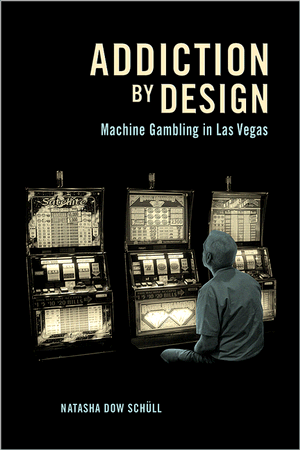Flow
Did You Know These 7 Surprises about Slots?
Is getting into a "machine zone" as positive as entering flow?
Posted November 4, 2012

Some people seeking a way out of their own fretful lives get addicted to slot machine gambling. They lose themselves in a "machine zone" that is somewhat like a flow state.
The author of Addiction by Design: Machine Gambling in Las Vegas (Princeton University Press) is Natasha Dow Schüll, who is a cultural anthropologist and associate professor at MIT's Program in Science, Technology, and Society. After 15 years of field research in Las Vegas, she wrote this highly readable book about how people self-medicate by pushing buttons on slot machines.
This "machine zone" is akin to the flow state that writers and artists long to enter, as it's where they often produce work most effortlessly (whether or not the output turns out to be terrific or even keepable when critiqued in a non-flow state.) The rhythm and feedback processes of the slot machines cause bodily sensations to fade so that gamblers don't feel hunger or thirst at normal intervals, and everyday concerns don't intrude for as long as play goes on. Players speak of numbness or escape, of getting lost in the machine.
The difference, of course, is that the machines are programmed so that the player almost never wins in the long run, certainly never produces anything, and the selfless worry-free state only lasts as long as playing time, which is limited by the players' means. And all of this is a result of the interplay between player and machine, writes Schüll, rather than being a product of only the player's personality or the machine's design.
Schüll's narrative moves smoothly from the casino floor to the players' stories of compulsion. This is a fully endnoted academic volume, while being consistently compelling reading.
Numerous fascinating issues are brought up, including how and whether the industry ought to be better regulated. Companies don't seek to create addicts, they say, but they do admit to designing machines that compel consumers to gamble longer, faster, and more. Addiction is the result. Though the industry is regulated as to the accuracy of the machines and their random number generators, Schüll asserts that there is no testing to evaluate the potential harmful effects of the product on consumers.
7 SURPRISES ABOUT SLOTS:
1. Slots gaming is not about the money. For the player, that is. Some players admit that winning a jackpot feels like an interruption that pulls them out of "the machine zone."
2. Penny slots are now the largest source of income for most casinos.
3. Machines with buttons and credits, instead of pull handles and coins, allow hundreds of games, rather than a few games, to be played in a minute.
4. Addiction can happen quickly with video gambling devices, in a year rather than three or more with other forms of gambling.
5. When multiple lines are played, say 25 nickels at a time, you may win a few nickels back with each button push. That positive reinforcement hides the fact that you're losing.
6. The devices are now legal in 40 states, and under consideration by others.
7. Modern slot machines are designed precisely to do what they do: take your money by putting you into a glassy-eyed trance so you won't walk away while you have a single dollar or credit left.
Addiction by Design is a must-read for understanding addictive behavior. It's also for those concerned about the profit made by getting consumers addicted to harmful behaviors. It's not an anti-gambling screed. Knowledge and understanding are always good.
- Schull was interviewed on 60 Minutes.
- In a previous post, I quoted a doctor whose lighthearted book described slot machines as harmless fun, often played by pleasant, thoughtful folk.
I'd love you to share your own views: how much can you gamble and still have it be a positive activity? What motivates you to start and to stop playing the slots?
Copyright (2012) by Susan K. Perry


